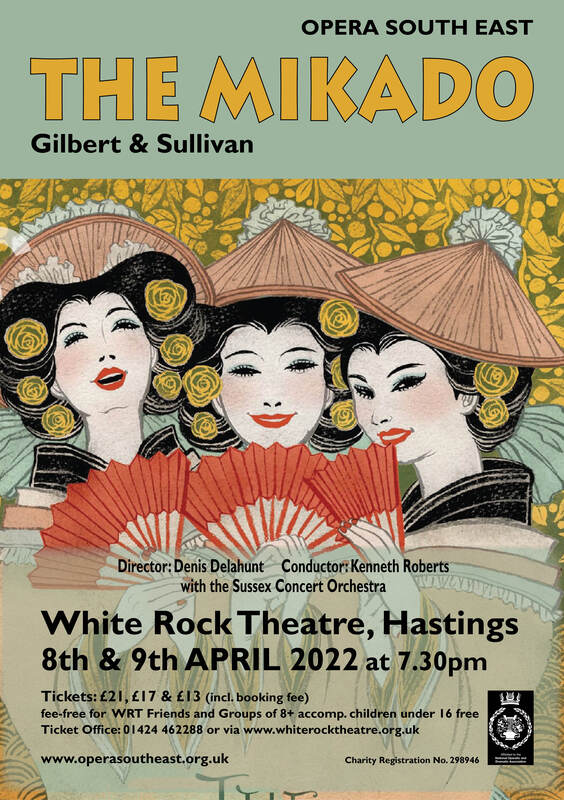The successor to the Cambridge Handel Opera Group, the Cambridge Handel Opera Company aims to perform Handel’s operas in productions in which both music and staging are informed by the practices of Handel’s own day. The casts field upcoming performers alongside established singers, and the orchestra blends leading professionals with senior students from conservatoires across Britain and elsewhere. Four years after their inaugural production of Rodelinda in 2018, they returned to the stage of the Leys School with perhaps the least-known of the three operas (Giulio Cesare, Tamerlano and Rodelinda) which Handel produced in the space of one remarkable year from February 1724.
Any concerns that a “historically informed” production of Tamerlano would mean three hours of singers standing and delivering baroque arias while wearing togas were dispelled during the overture when a band of soldiers in military uniform of the early twentieth century burst onto the stage in search of the defeated Ottoman emperor Bajazet and his daughter. The setting suggested post-World War I Turkey, and James Laing’s Tamerlano, with fez and toothbrush moustache, a young Atatürk. It’s not the first Handel opera production I have seen set in this kind of milieu and I suspect it won’t be the last; the intrigues of baroque opera seem peculiarly suited to the world of King Zog, Admiral Horthy and the other régimes which succeeded the Ottoman and Austro-Hungarian empires in South-Eastern Europe.
Director Dionysios Kyropoulos had aimed to incorporate aspects of the acting technique of Handel’s time into his production, and it is perhaps testimony to the effectiveness of his approach that for much of the evening I was not aware of it, the performances seeming perfectly natural within the constraints of baroque convention. A single set piece depicting a fallen classical column suggested a defunct empire, and served as couch or throne as required. The band, bigger than we often get in Handel with a theorbo on continuo duties as well as two harpsichords, was arranged as it would have been in an eighteenth-century opera house. One departure from historic practice was that the opera was sung in English in an excellent translation founded on that by Handel Opera Group founder Andrew Jones. Clear diction by the cast ensured that there was no need for distracting surtitles, and there was a great gain in dramatic immediacy.
In the title role, James Laing presented an almost effete figure who was nonetheless capable of unpredictable fits of rage and cruelty. He despatched his furioso coloratura runs with impressive ease, though his relatively light voice was not always well-balanced with the large orchestra. His defeated rival Bajazet is a rare big role for a tenor in baroque opera, seized with both hands by Christopher Turner. He too had an impressive “rage” aria, in which the big band came into its own, the singer borne aloft on tossing seas of semiquavers. But he also brought out the complexities of a role which might seem tediously unbending, and his embodiment of the character’s physical as well as mental disintegration in the final death scene – one of Handel’s most astonishing passages – was what remained in the memory.
The evening had begun with an apology on behalf of Thalie Knights who had been suffering with vocal problems, but in the event it was hardly necessary. In the role of Andronico, Tamerlano’s war ally and love rival, she brought a welcome inward quality to her most deeply-felt arias, gradually increasing in power as the evening progressed. As Bajazet’s daughter Asteria, Caroline Taylor commanded attention from her first entrance. This is perhaps the character in the opera with most agency, making not one but two assassination attempts on the title character and generally holding her own in a male world. Taylor was fully equal to the challenge, and throughout brought a steely intensity and powerful presence to the role.
Modern productions of Handel tend to assume that audiences won’t stand for three hours of the seria mood, and the entrance of Tamerlano’s “other woman” Irene and her entourage, costumed as if they were visiting a country house in a Poirot mystery, brought a noticeable lightening of the mood. Leila Zanette’s limpid mezzo and Jolyon Loy’s rich bass in his one aria brought welcome contrast in an opera when high voices predominate, though it was in these scenes that I felt that the baroque gestures sometimes tipped over into mannerism.
Directing from the harpsichord, Julian Perkins pacing and dynamic control brought out all the tension and passion of Handel’s writing. The whole evening was a triumphant vindication of Handel the musical dramatist – I hope we will not have to wait another four years for the next production.
William Hale

 At the present time Gilbert and Sullivan’s Mikado is a tricky one to perform in an entertaining way, without provoking cries of, racism, cultural appropriation and general bad taste. Opera South East managed to pull it off on April 9/10 at the White Rock Theatre.
At the present time Gilbert and Sullivan’s Mikado is a tricky one to perform in an entertaining way, without provoking cries of, racism, cultural appropriation and general bad taste. Opera South East managed to pull it off on April 9/10 at the White Rock Theatre.